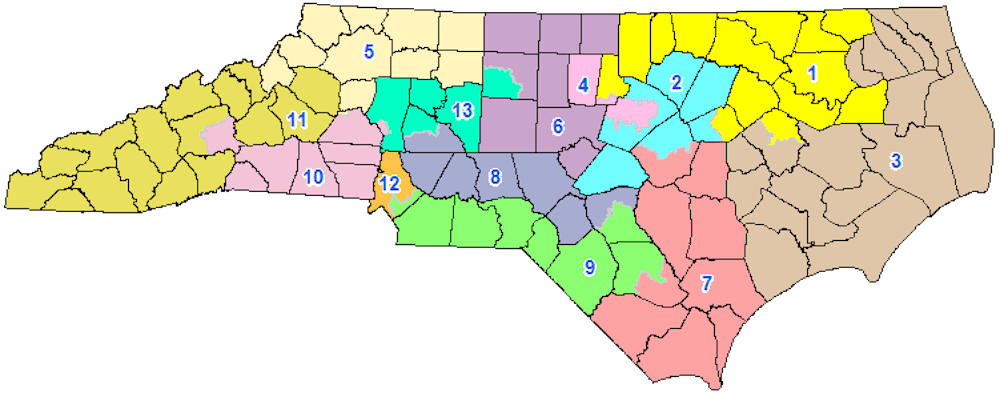North Carolina Republicans asked the U.S. Supreme Court to halt a second lower-court redistricting order against state House and Senate districts they approved last summer.
Lawyers for the Republican lawmakers asked the court to block a panel of federal judges' decision that accepted alterations to two dozen legislative districts made by a court-appointed expert. The judges ordered the maps to be used in this year's election.
Earlier this month, for the second time in three years, federal judges ordered North Carolina Republicans to redraw congressional voting maps because of excessive partisan gerrymandering.
After the initial Jan. 24 deadline for redrawn maps was delayed last week by the U.S. Supreme Court, it is possible the unconstitutional maps will be used in this year’s midterm elections.
Sen. Jeff Jackson, D-Mecklenburg, has an alternative plan.
Jackson proposed a bill to the state Senate Jan. 8 to establish an independent redistricting commission.
The commission would consist of nine members — two appointed by the chief justice of the state Supreme Court, three by the governor and one each by the respective leaders of the two major parties in both houses of the state legislature.
“Independent redistricting is key to bringing back bipartisanship,” Jackson said. “North Carolina is a 50-50 state, but the reason we’re not functioning like that on a political level is because of gerrymandering.”
The bill drew immediate criticism from Republicans, such as Rep. Scott Stone, R-Mecklenburg.



